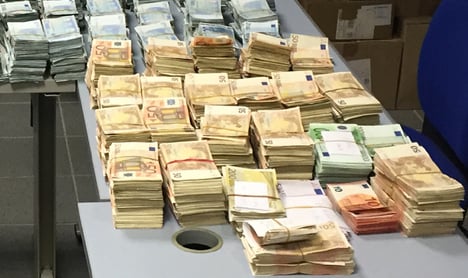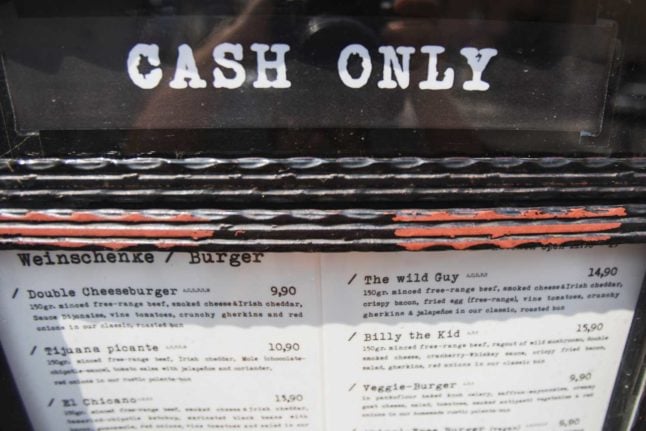.jpg)
CASH
Driver enters France with €1.9 million hidden in car
A motorist in southern France was arrested after he was caught with €1.9 million ($2.1 million) in cash stashed in various hidden compartments in his car.
Published: 2 October 2015 11:39 CEST

Police seized a total of over €1.9 million. Photo: Police
The man was heading into France from Spain when customs officers in Perthus searched his car at the Spanish border, police announced on Friday.
The motorist, a 31-year-old from Hungary, denied that he any more than €10,000 in cash, which is the maximum amount that travellers can legally have when coming into or leaving France.
.jpg)
The border security decided, however, to carry out a search on the vehicle where they found wads of cash in a secret compartment near the brake lights. They found even more money in the area where the spare tyre is usually kept.
In total, the officers found €1,918,460 – the vast majority of which were 20- and 50-euro notes.
The Hungarian was taken into custody on Saturday afternoon on charges of failing to declare the cash and money laundering.
Url copied to clipboard!


 Please whitelist us to continue reading.
Please whitelist us to continue reading.
Member comments